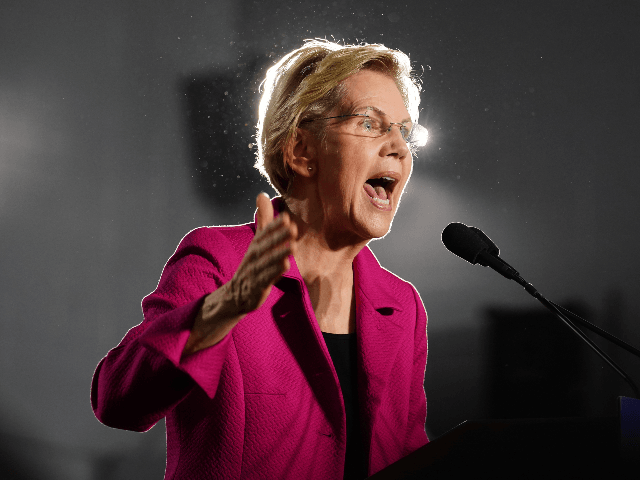Sen. Elizabeth Warren (D-MA) on Thursday delivered a speech at Clark Atlanta University, and declared that it is time to adopt Rep. Sheila Jackson Lee’s (D-TX) legislation on reparations.
Warren delivered a speech at the historically black university Thursday evening and stressed the need to pass Lee’s reparations legislation, which “establishes the Commission to Study and Develop Reparation Proposals for African-Americans.”
“Let’s be clear: It’s time for our government to have a full-blown national conversation about reparations,” Warren wrote in a tweet containing a video of her remarks:
“America was founded on principles of liberty and built on the backs of enslaved people. [It’s] time to adopt H.R. 40, Sheila Jackson Lee’s reparations plan. [It’s] time to do what’s right, so that our nation can begin to heal,” Warren stated.
The commission, according to the summary, would examine slavery and discrimination from 1619 to the modern era and “recommend appropriate remedies.”
While Warren said that would be a “big step,” she suggested that more must be done.
“This is a big step but slavery is not the only history we must confront. Jim Crow was the lived reality in American up through the 1960s,” Warren said.
She continued:
Government redlining meant that too often, toxic waste dumps and polluting factories were located far away from white communities and right next to black communities. The 1994 crime bill exacerbated the mass incarceration that locked up millions of black men and women. So don’t talk about race-neutral laws. The federal government helped create the racial divide in this country through decades of active state-sponsored discrimination, and that means the federal government has a responsibility to fix it.
The presidential hopeful argued that each of her plans has an element that will address what she considers racial injustice. For instance, she said her Green New Deal plan would “put racial and environmental justice at the center of our response to climate change.”
“My health care plan will bring down the costs of prescription drugs and tackle the risks of black maternal mortality that is literally killing black women and their babies,” she continued, seemingly ignoring her support for abortion and the impact that has had on the black community.
“My public education plan will put 800 billion new dollars in federal money into our public schools and quadruple the funding or schools that teach low-income children. My student debt cancellation plan will help close the black-white wealth gap in America,” she continued, triumphantly declaring that her plans are “all paid for.”
“One more thing about those plans: They are all paid for, not by raising taxes one penny on working families,” she claimed. “They are all paid for by asking the wealthy and well-connected to just pay a fair share.”
“It’s time for a wealth tax in America. Two cents!” she declared.
This is not the first time Warren has signaled support for having a conversation on issuing reparations. She called for a “national, full-blown” conversation” in March:
However, when asked about the “direct transfers of money” during a CNN town hall event in March, Warren dodged the question, instead stressing the need for further conversations.
“If I could just follow up on Georgia’s question, you said you’re open to a conversation about reparations to the descendants of slaves and Native Americans? Might that include direct payments? Direct transfers of money?” CNN’s Jake Tapper asked.
Warren replied:
There’s a lot of ways to think about the way they should be formed. And I noticed Georgia’s question started with the frame of an apology and national recognition. We have a lot of experts around the country, a lot of activists that have a whole lot of different approaches to it and I think the best we can do right now
“I love the idea of this congressional commission, let’s bring people together and let’s open that conversation as Americans. Let’s see what ideas people want to put on the table and let’s talk them through,” she continued.
“Because I have to tell you, ignoring the problem is not working,” she added, failing to answer the specific question.

COMMENTS
Please let us know if you're having issues with commenting.